CBSR Helps Eager Businesses Straighten Up and Buy Right
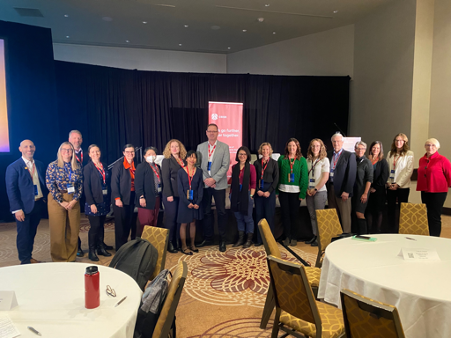
Projects Sponsor
Canadian Business for Social Responsibility’s Sustainable Procurement Fellowship initiates a much-needed corporate transition to net zero by providing participating Fellows with the latest tools and thinking on spending their organisations’ green greener.
As Canada’s only membership association for companies dedicated to co-creating a sustainable, equitable future, Canadian Business for Social Responsibility (CBSR) understands that they’re uniquely positioned to change the way some very big buyers shop.
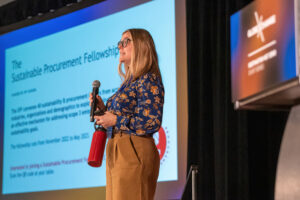
They also recognize that if Canada is going to meet its net-zero and SDG goals, businesses need to not only run cleaner, but also shop greener. According to the UN Global Compact, more than 70 percent of a business’ carbon footprint comes from outside the house. Emissions generated by enterprises and assets that lie beyond a business’ ownership and control are, on average, more than eleven times greater than their actual operational emissions.
That makes sustainable procurement a practical tool that can do a lot to accelerate net-zero and sustainable development goals’ progress, but it’s not a tool many organizations know how to use, yet.
Enter CBSR’s Sustainable Procurement Fellowship (SPF), a program (created in partnership with HP) designed to activate a corporate transition to net zero by providing participating fellows with access to the latest thinking on how to spend their green greener.
At the outset, anecdotal research by SPF design team members Frances Edmonds and Monica DaPonte indicated that while procurement teams often want to implement sustainable procurement, they often lack the necessary sustainability expertise and confidence to set such a program in motion. The Federal Government, to give an example, stated more than thirty years ago that they would implement green procurement, and today, still largely have no mechanisms in place that differentiate a supplier with leading sustainability performance from the smog monster from FernGully. The team’s research also indicated that the private sector was underrepresented in the dialogue around sustainable procurement.
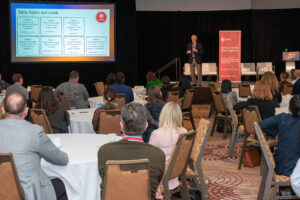
When the time came to turn research into action, the CBSR team recruited a diverse range of Fellows from across Canadian communities, perspectives, and sectors. These Fellows were selected for their experience as sustainability professionals and/or in roles bridging sustainability and procurement, and the seniority needed to shape and drive change management and organizational alignment efforts.
In phase one of the four-phase, multi-workshop program, Fellows explored the current state of the procurement system, identifying critical challenges, gaps, and opportunities to embed sustainability into procurement processes in alignment with corporate strategies. Next, they reframed the procurement approach to enable organizational sustainability goals, understand the business case of sustainable procurement, and validate the viability of the identified opportunities with internal teams.
Fellows were then able to define and prioritize a portfolio of interventions with the most potential impact to integrate sustainability into the procurement system. This third phase included sharing ideas and experiences with fellow peers to enable action as well as defining a collaboration channel internally to enable cross-functional synergies.
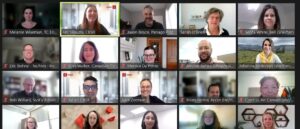
In the final phase, Fellows prototyped an initiative to enhance sustainability performance through the procurement system. The fellows either started from scratch or improved an ongoing project and developed an implementation plan that prioritized organizational consensus, strategy/policy alignment, resource availability, and mechanisms of accountability.
The idea is to give the will a way.
Learning and adapting their program as they moved forward, the SPF team developed an accompanying workbook to provide continuity between sessions and to serve as a comprehensive guidance document once the Fellows finished the program.
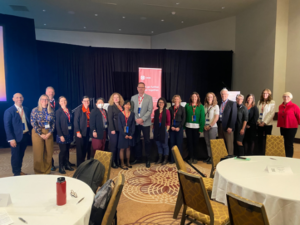
To date, more than 80 percent of the newly schooled Fellows have either started or improved a sustainable procurement initiative within their organization and nearly ninety percent of Fellows are working on adding more weight towards sustainability metrics in their organisation’s RFXs.
Private sector action is vital if Canada is to meet net zero by 2050 and procurement as a tool to reduce emissions is sitting right there, at just about every business’s disposal. The SPF is about encouraging, helping, and empowering people to pick up that tool because if we’re going to cool down, we all need to straighten up and buy right.













